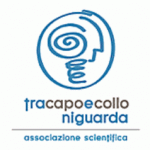The term ’ means sinusitis inflammation of one or more paranasal sinuses, which are the cavities face covered with mucosa, full d ’ air and communicating with the nasal cavities. You recognize the maxillary sinuses, ethmoidal cells, the sphenoid and frontal sinuses.
Healthy mucous membranes produce small quantities of serum and mucus that protect the sinuses from infection, These secretions are normally drained through small Ostia to the nasal cavities.
A stagnation of secretions all ’ inside paranasal sinuses cause inflammation and encourages the development of bacterial colonies.
Most sinus infections are associated with rhinitis (rhinosinusitis), a more limited number of infections are associated with dental disease (Odontogenic sinusitis).
Most infections are caused by bacteria, less frequently sinusitis can be caused by fungus (fungal sinusitis).
You recognize acute forms, chronic and forms associated or not with nasal polyps.
There are some situations that promote sinusitis:
-airway obstruction of drainage: rhinitis, trauma, nasal polyps, foreign bodies, Neoplasms,, septal deviations
-ciliary abnormalities: Kartagener Syndrome, infectious inflammatory/allergic, cigarette smoke, pollution, industrial toxic
-quantitative or qualitative alterations of mucous secretions (Cystic Fibrosis).
The acute forms occur with symptoms quite violent with nasal respiratory obstruction, runny nose, purulent frequently, starnutazione, cough, hyposmia, cacosmia and pain face or forehead.
Similar symptoms in chronic forms but generally softer, are frequent exacerbations.
The diagnosis is made on the basis of medical history and evaluation ’ ENT with anterior rhinoscopy and sometimes with endoscopic examination. The TC is used for dubious forms or in chronic forms for which you are considering a surgical therapy.
Treatment of acute forms is mostly with broad spectrum antibiotics and medicines Ant-edema (steroids/vasoconstrictors) both topically that systemic.
In chronic forms medical therapy can improve/fix the problem and surgery (FESS: functional Endoscopic Sinus surgery) is reserved for sinusitis resistant to medical therapy.
Sinusitis can cause serious complications: periorbital cellulitis pupil of lamina with osteomyelitis (conjunctival oedema, orbital pain, belated extrinsic eye muscles paralysis), meningitis, brain abscesses, cavernous sinus thrombophlebitis. Pott puffy tumor: frontal osteomyelitis to Hematogenous spread. Spread of infection to other forums of the Airways.









